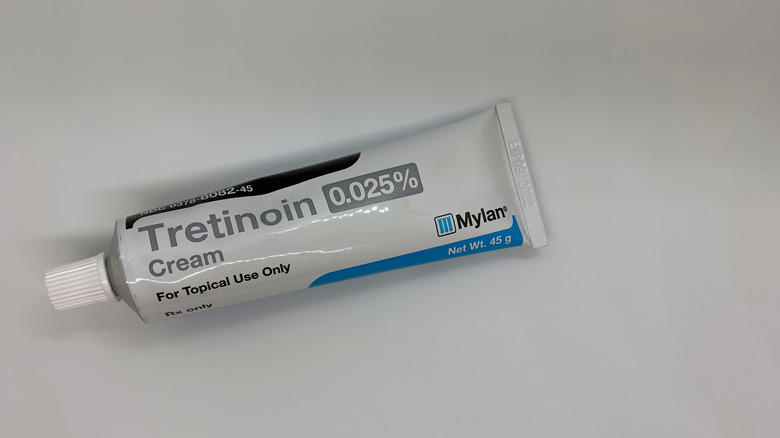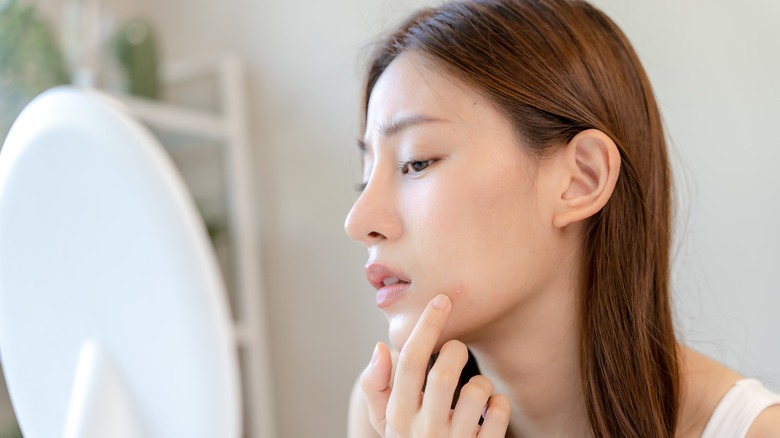What To Expect When Using Tretinoin For Acne
If you're thinking about using Tretinoin for your acne, it's important to understand how the medication works. Tretinoin is a prescription cream or gel that's applied to the skin (via Healthline). It's part of a class of drugs called retinoids, which are similar to vitamin A. Tretinoin works by increasing cell turnover and preventing the buildup of dead skin cells. This helps to unclog pores and reduces inflammation. The medication is most commonly used to treat acne, but it can also be used to treat other conditions, such as fine wrinkles, dark spots, and rough skin.
Tretinoin is available in both over-the-counter (OTC) and prescription form. The prescription form is stronger and should only be used under the supervision of a healthcare provider. When using Tretinoin, it's important to follow the instructions on the package or from your healthcare provider. This will help to reduce the risk of side effects, such as skin irritation. It may take several weeks or months to see the full effects of Tretinoin. In the meantime, you may experience some skin dryness, redness, scaling, or peeling. These side effects are usually mild and temporary.
Other ways to treat acne
Tretinoin is just one of the ways that acne can be treated. According to WebMD, there are many other topical treatments that can improve symptoms of acne, including benzoyl peroxide, antibiotics, and birth control pills. Benzoyl peroxide is available over the counter and works by killing the bacteria that cause acne. Antibiotics can be taken orally or applied topically, and work by reducing inflammation and killing the bacteria that cause acne. Birth control pills can also help to regulate hormones, which can help to reduce the severity of acne.
Acne has many different causes, and you will need to treat the cause if you want to effectively treat your acne (via Mayo Clinic). Some acne is hormonal and can be treated with birth control pills or other hormone-regulating medications. Other acne is caused by bacteria and can be treated with antibiotics. Still, other acne is caused by excess oil production and can be treated with topical treatments like benzoyl peroxide or retinoids. Figure out what is causing your acne, so that you can choose the best treatment option for you.


